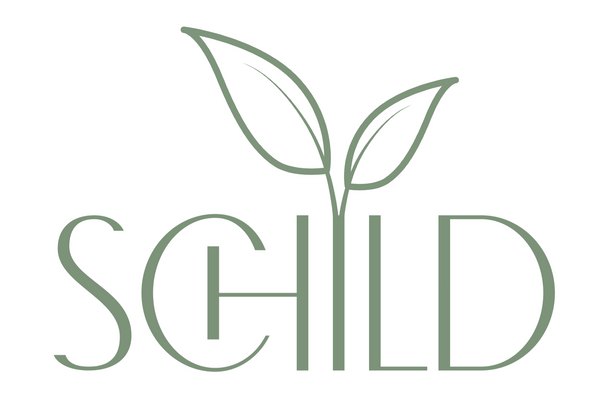
Can Our Diets Mitigate the Harmful Effects of EMF? The Power of Food as Your Daily Shield
Share
We live in an electromagnetic world. Radio frequencies surround us, WiFi networks pulse through our homes, and 5G towers dot our skylines. While EMF shielding technology offers important protection, the most powerful defence against oxidative stress might be sitting right in your kitchen.
The reality is simple: EMFs aren't going anywhere. But neither is your ability to strengthen your body's resilience against them. Every meal you eat is an opportunity to build your cellular defences, and that's incredibly empowering.
The Cellular Battle: Oxidative Stress vs. Antioxidant Defence
Oxidative stress occurs when there is an imbalance between free radicals and antioxidants in the body. Free radicals are unstable molecules that can cause damage to cells, leading to inflammation, premature aging, and chronic diseases including cancer, diabetes, and heart disease.
When it comes to EMF exposure, research shows that electromagnetic fields can trigger oxidative stress at the cellular level through disruption of voltage-gated ion channels. This creates a cascade of cellular stress that your body must process and neutralise.
But here's the empowering part: the body naturally produces antioxidants to counteract these free radicals. And we can significantly boost these defences through our food choices.
Your Body's Master Antioxidant: Glutathione
Glutathione is one of the body's most important and potent antioxidants. Unlike most antioxidants that come from food, your liver actually produces glutathione naturally. It's your cellular best friend —neutralising free radicals, supporting immune function, and helping detoxify harmful compounds.
Glutathione plays a crucial role in the cellular response to oxidative stress through its ability to quench free radicals, thus mitigating the risk of potential damage, including cell death.
The challenge? There are a number of reasons why your body's glutathione level may become depleted, including poor diet, chronic disease, infection and constant stress. Modern life—including chronic EMF exposure—can drain these crucial reserves.
The opportunity? You can actively support and boost your glutathione production every day through strategic food choices.
The Glutathione-Building Foods You Need to Know
Sulfur-Rich Powerhouses
Sulfur is an important mineral that occurs naturally in some plant and protein foods. It's required for the structure and activity of important proteins and enzymes in the body. Notably, sulfur is required for the synthesis of glutathione.
Include these sulfur champions:
- Cruciferous vegetables: Broccoli, Brussels sprouts, cauliflower, kale, watercress, mustard greens
- Allium vegetables: Garlic, onions, shallots
- Quality proteins: Grass-fed beef, wild-caught fish, pasture-raised poultry
In a 2013 pilot study, one 250-gram portion of steamed broccoli increased the activity of the enzyme glutathione S‐transferase, suggesting increased plasma levels of glutathione, and improved oxidative stress resistance in 10 healthy adult males.
Directly Glutathione-Rich Foods
While dietary glutathione is poorly absorbed by the human body, including these foods may still help reduce oxidative stress:
- Avocados: In addition to glutathione, avocados contain numerous vitamins, minerals, and healthy fats
- Spinach: A nutrient powerhouse loaded with glutathione precursors
- Asparagus: No matter how you prepare asparagus, it provides an excellent source of glutathione
- Okra: Often overlooked but glutathione-rich
- Watermelon: Refreshing and naturally high in this master antioxidant
The Cysteine Connection
Your body's production of glutathione depends on certain amino acids. An amino acid called cysteine is a particularly important amino acid that is involved in glutathione synthesis.
Top cysteine sources:
- Whey protein: Research strongly supports this claim, as many studies have found that whey protein may increase levels of glutathione and, therefore, reduce oxidative stress
- Eggs (especially the yolks)
- Sunflower seeds
- Legumes and lentils
Beyond Glutathione: Your Antioxidant Arsenal
The Vitamin C Powerhouses
Oranges are well-known for their high vitamin C content, which is a powerful antioxidant that supports immune health, skin repair, and collagen production. Additionally, oranges contain flavonoids that help reduce inflammation and combat oxidative stress.
Load up on:
- Citrus fruits (oranges, lemons, grapefruits)
- Berries (blueberries, strawberries, blackberries)
- Bell peppers
- Kiwi fruit
- Leafy greens
The Vitamin E Champions
Walnuts are not only a convenient snack but also a treasure trove of antioxidants, including polyphenols and vitamin E.
Essential sources:
- Nuts (especially almonds and walnuts)
- Seeds (sunflower, pumpkin)
- Olive oil
- Wheat germ
The Selenium Factor
Taking curcumin, selenium, vitamin C, and vitamin E can help the liver create glutathione.
Selenium-rich foods:
- Brazil nuts (just 2-3 per day)
- Wild-caught seafood
- Organ meats
- Mushrooms
The Lifestyle Multipliers
Exercise: Your Natural Glutathione Booster
Research has also suggested that exercise can reduce oxidative stress by increasing glutathione levels. In a 2014 study, researchers observed that older adults who had participated in regular physical activity throughout their lives had higher levels of glutathione.
A combination of weight training and aerobic exercise helps increase glutathione levels better than either alone.
Sleep: Your Cellular Repair Time
Sleep helps maintain both your physical and mental health. It may also affect glutathione levels. During sleep, your body performs crucial cellular repair and detoxification processes.
Create an optimal sleep environment by:
- Keeping your bedroom cool and dark
- Minimising EMF exposure during sleep
- Maintaining consistent sleep schedules
- Avoiding screens before bedtime
Green Tea: A Simple Daily Ritual
In a study involving 54 healthy adult participants, both the green tea and green tea extract significantly increased plasma antioxidant capacity and whole blood glutathione compared with the group that only received water.
Four cups of green tea daily showed measurable improvements in antioxidant status—a simple, enjoyable way to boost your defences.
The Honest Answer: Yes and No
Yes, diet can significantly help because:
- Food provides the building blocks for glutathione production
- Antioxidant-rich foods directly combat oxidative stress
- Strategic nutrition supports your body's natural defence systems
- Numerous studies have indicated an inverse correlation between the consumption of vegetables and fruits and the risk of chronic diseases, attributing these health benefits to the presence of antioxidant phytochemicals in these foods
But no, diet alone isn't enough because:
- EMF exposure is constant and unavoidable in modern life
- Some oxidative stress from electromagnetic fields may exceed what diet alone can neutralise
- Physical protection through shielding remains important for high-exposure situations
The Choice is Yours—Every Single Day
Here's what makes this approach truly empowering: food rich in antioxidants may play an essential role in the immune system, production of cellular energy.
Every meal is a choice. Every snack is an opportunity. Every day, you decide whether to fuel your body's defence systems or leave them running on empty.
You can't control every electromagnetic field you encounter, but you can absolutely control what goes on your plate. You can't eliminate all oxidative stress, but you can give your body the tools it needs to fight back effectively.
A diet rich in antioxidant-rich foods supports the body's ability to fight oxidative stress, reduce inflammation, and maintain cellular health.
While EMF protection products provide important external shielding, your internal resilience starts with the choices you make three times a day. Build that foundation strong, support it with smart environmental strategies, and you'll be giving your body the best possible chance to thrive in our electromagnetic world.
The power is on your plate. Use it.
